After Labour secured a landslide win in the General Election, the fleet and leasing industry is calling on the new Government to give the sector the “attention and backing it deserves”.
Incentives for electric vehicles (EVs), maintaining low benefit-in-kin (BIK) tax rates, repairing roads and supporting a sector facing significant change are among the many wants from the industry.
However, fleets will probably have to wait for the Budget to get a clearer picture of the new Government’s true direction.
Jon Lawes, managing director at Novuna Vehicle Solutions, one of the UK’s largest fleet operators, said: “Businesses need stability and confidence, so it’s vital the new Labour Government urgently takes decisive action to address prevailing uncertainty on transition goals and provide cast iron EV adoption deadlines for vans as well as cars.
“Addressing the fundamental barriers to EV adoption through policy incentives and charging infrastructure investment need to be priorities in the in-tray for the new Government.”
Philip Nothard, insight director at Cox Automotive, is asking that the new Government gives the automotive sector - as a major UK employer, an integral part of the nation's industrial strategy, a significant contributor to the treasury and a key component of our net zero commitments - the “attention and backing it deserves”.
“This is a time of seismic change throughout the automotive ecosystem,” he said.
“Without leadership and sustainable support from the Government, the sector will be compromised in its ability to meet its full potential.”
Sue Robinson, chief executive of the National Franchised Dealers Association (NFDA), which represents car and commercial retailers across the UK, believes that the next few months and years will be pivotal for the industry.
“It is essential that the new government works with NFDA and the automotive sector throughout the UK to offer robust support on these key issues while unlocking the dynamic potential of this sector,” she said.
In a statement, the Road Haulage Association (RHA) congratulate the new Prime Minister, Sir Keir Starmer on his “decisive election victory”.
It added: “We look forward to working with him, his new Government and newly elected MPs on our sector’s priorities to help them deliver their missions and plans for economic growth.
“There is a key opportunity in the first 100 days of this new administration to make the early improvements our industry needs to grow and there are a range of policies outlined in our manifesto that we will be looking for the new Government to bring forward.
“Our industry – HGVs, vans and coaches – is a key economic enabler but we’re operating in a climate of mounting cost pressures and uncertainty which we must tackle.
“We’re clear that collaboration between government and industry is vital as we develop ideas and solutions that will help unlock our country’s economic potential and drive future growth.”
David Savage, vice president of Geotab in the UK and Ireland, called for the new Government to go further on EV than the pledges included in their manifesto.
“Reinstating the ICE ban is welcome, but we also need meaningful incentives to drive more private and fleet buyers into electric cars and vans, such as grants and charging initiatives,” he said.
Robin Futcher, CEO of Commercial Fuel Solutions, meanwhile, said that Labour's win could fuel the UK's hydrogen industry.
“Their green energy focus aligns with the industry's 10GW green hydrogen goal by 2030,” he said. “The proposed £500m fund and swift policy action would attract investors.
“To capitalise, the new Government should prioritise confirming HAR2 plans, decisions on hydrogen use, and a long-term demand strategy. These steps will accelerate the UK's hydrogen sector and solidify its global position.”
Stuart James, chief executive of the Independent Garage Association (IGA), noted the importance of tailored government policies to address the decline in automotive apprenticeship registrations.
“The independent garage sector is vital to the economy, managing 70% of the UK’s vehicle service and maintenance work,” he said.
“It is essential that apprenticeship policies take into account the unique challenges and opportunities this sector faces as automotive technology advances more rapidly than ever before.”
In a statement, the Institute of the Motor Industry (IMI) said that the Labour party clearly identified its understanding of the importance of skills for UK infrastructure in its manifesto; it was also the only party with a dedicated automotive policy which recognised the contribution the motor industry will play in achieving net zero goals.
“With a stated plan to allocate £1.5 billion to new gigafactories, as well as restoring the phase-out date of 2030 for new cars with internal combustion engines, clearly there is no time to lose in addressing the current challenges around further education and apprenticeships, as well as uplifting skills in the sector,” it continued.
Richard Hebditch, UK director at Transport and Environment, believes that the new Government’s plans have the potential to be transformative for the UK.
“They would revolutionise our energy system, overseeing an explosion in our renewables capacity that would drastically cut emissions and improve our energy security,” he said. “But Labour’s manifesto and statements so far suggest some significant missed opportunities.
“Transport is the highest-emitting sector in the UK. While Labour’s support for existing policy, like the zero emission vehicle mandate, and new policy, like improving consumer confidence in EVs and expanding charger rollout, will make a real difference to reducing road emissions, there is a risk of missing three massive opportunities where decarbonisation and growth come hand-in-hand.
“Ensuring that emissions fall from trucks, aviation, and shipping is not only vital to keeping the UK in line with its climate goals, it has the potential to secure significant amounts of private investment, infrastructure improvements and jobs.
“Zero-emission fuel development and production; further renewables expansion; zero-emission truck, plane, and ship production - there is plenty that a new Government can take advantage of.”
Asif Ghafoor, CEO of national EV charging network BeEV, wants the new Government to introduce a mandate that compels every local authority to open up 50% of their land for private companies to install EV chargers.
“They don’t have the capital or expertise to do it themselves,” he said. “We don’t want any more rules or changes - that’s a headache for everyone. What we really need is continuity and certainty. This will really help charging networks to expand.”
With clear commitments to creating a gigafactory, and associated supply chain, in the West Midlands, from thr incoming Labour Government, Richard Moore, battery strategy expert at Greenpower Park, said: “From automotive to energy storage, there is an urgent need to secure global battery manufacturers along with the associated supply chain to meet the growing demand for electrification in the UK.
“Electrification, across all sectors, is of strategic importance for the UK and it needs to be part of the new Government’s broader industrial strategy which will ensure that potential investors consider the UK in the future.”
Richard Staveley, chief executive officer at EO Charging, says that the net zero mandate, a crucial objective for climate control, must continue under the new Government.
“Transport is responsible for almost a quarter of global emissions, with commercial fleets accounting for a large proportion of this,” he added.
“Emission-free transport is essential to ensuring the UK meets its Net Zero mandate, so making the transition to electric vehicles will be a crucial component.
“We already know that developing and investing in the right infrastructure to support electrification is important, but focusing on the electrification of commercial and public sector fleets is fundamental.
“We need to see Labour developing and implementing a strategy that tackles the challenges to EV adoption and creates long-term reliable funding, particularly for commercial and public sector fleets, which stand to have the greatest environmental impact.”
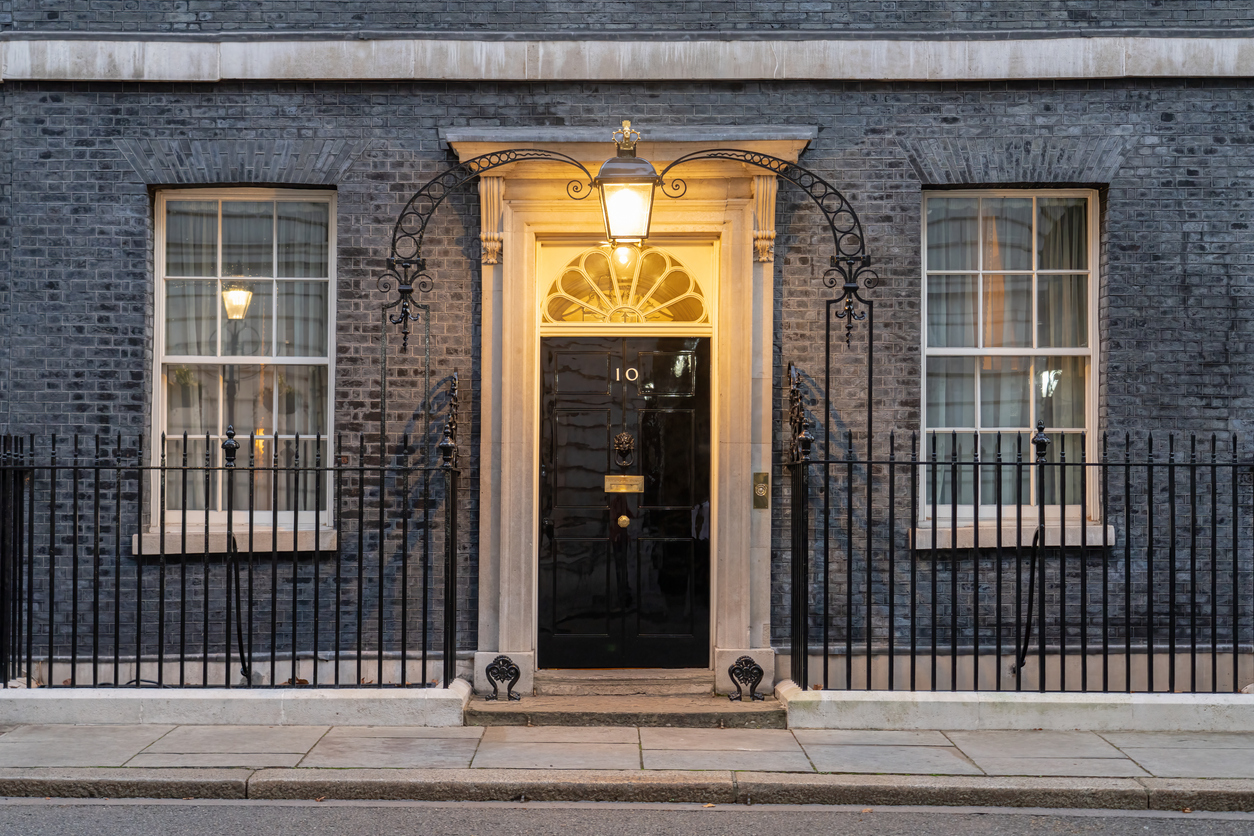
It was a similar message from Adam Hall, director of Energy Services at Drax Electric Vehicles.
“The new Labour government’s priority must be to build on the growing momentum towards net zero and to support the EV industry to develop in a way that makes it work for everybody,” he said.
“Fast and accessible charging for all vehicle types – including vans and HGVs – along with government grants and subsidies are a key part of instilling confidence among businesses and consumers, making the prospect of switching to an EV an attractive one.
“Fleet-operating businesses, who continue to be the driving force behind EV market growth, require clarity around future rates and taxes to help inform their decision-making.
“We’d therefore urge the government to prioritise the publication of company car tax rates for 2028 and beyond and give confirmation that the plug-in van grant and workplace charging scheme will continue past March next year.
“At the same time, we’d ask them to explore other ways in which we can reward and incentivise businesses who invest in EVs and renewable energy infrastructure.
“We’d also like to see a continued commitment to the implementation of the standards set out in the 2023 Public Charge Point Regulations, such as a 24/7 helpline for drivers and mandatory contactless payment options.
“There’s also an urgent need for more accessible charging, particularly for van drivers and disabled drivers, to ensure that everyone has the same positive experience while topping up their vehicle.”
Michael Topham, CEO at Biffa, added: “The transition to decarbonised energy and transport systems is increasingly urgent, and the waste sector must move to no or low carbon collection fleets.
“Biffa has already started to adopt alternative fuels across our fleet, with more than 94 battery electric vehicles and electric HGVs, and 64 renewable diesel (including HVO) fueled vehicles, in service.
“A huge obstacle to further decarbonisation, identified by Labour, is the electricity distribution grid. Here we need to up the pace, and we must ensure that costs for grid upgrades are not imposed only on the first to act.
“We also welcome Labour’s commitment to accelerating the roll out of charge points; shared charging infrastructure should be encouraged to save space in metropolitan areas. At all times it is vital that electrical commercial vehicles are given equal focus as domestic vehicles.
“To support the transition to net zero, we’re also urging the Government to introduce zero emissions zones, speeding up adoption of electric vehicles, stimulating innovation and investment in new technologies, and improving air quality and reducing noise.”
Ian Plummer, commercial director at Auto Trader, said: “All too often in the recent past, we’ve seen short term political advantage prioritised at the expense of the serious long-term decision-making the country needs to meet net zero goals.
“Given the size of their mandate, we’d like to see Labour do more to support the transition to greener vehicles. That means protecting the existing salary sacrifice and BIK incentives to support the new electric car market, and targeted financial incentives on used electric cars to support greater adoption.
“We also need to be proactive and transparent about future changes in road pricing and taxes for electric cars so consumers can plan accordingly, as well as supporting the industry to install more chargers by speeding up planning and encouraging more creative ways to charge EVs near people’s homes.”
Chris Allen, managing director of LEVC, added: “The new Prime Minister and his party have made a promise to accelerate the UK’s transition to an electrified future, including a pledge to reinstate the 2030 ICE ban which we welcome.
“However, to deliver on this ambition and seize the opportunities for manufacturing growth that will enable it, we need targeted consumer incentives to continue for commercial and niche vehicle drivers, including for taxis.
“More than half of London’s black cabs are now zero-emission capable – with uptake growing in towns and cities nationwide. To keep momentum, the new Government must continue the plug-in taxi grant beyond the current financial year.
“Removing VAT from public charging networks will also keep costs down for business (and private) users to help ensure switching to an EV is an equitable choice for those without access to home charging.”

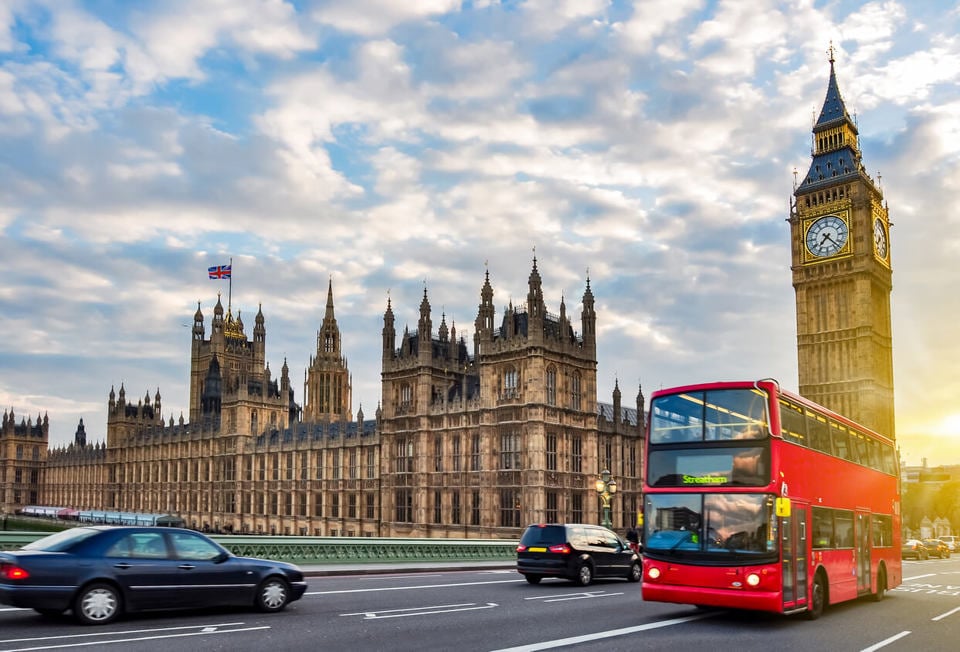





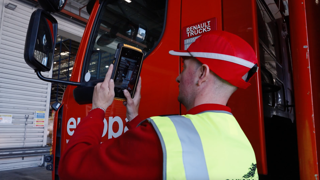

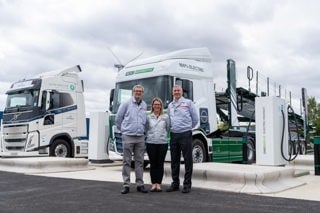
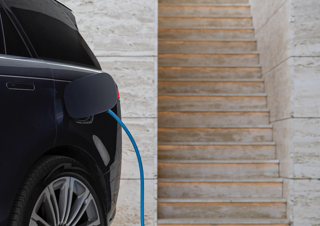












Login to comment
Comments
No comments have been made yet.